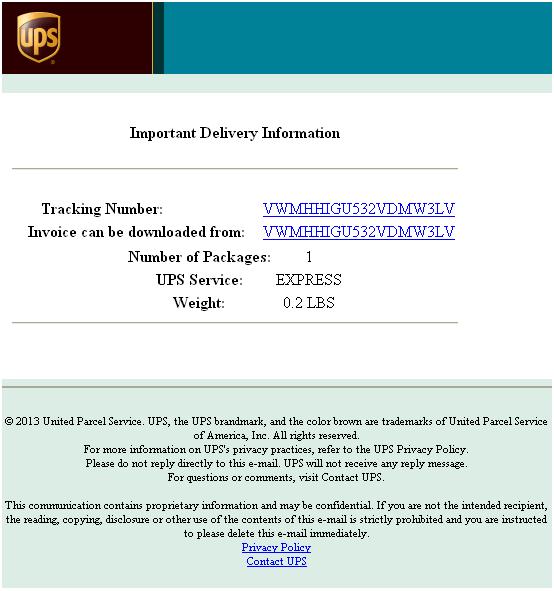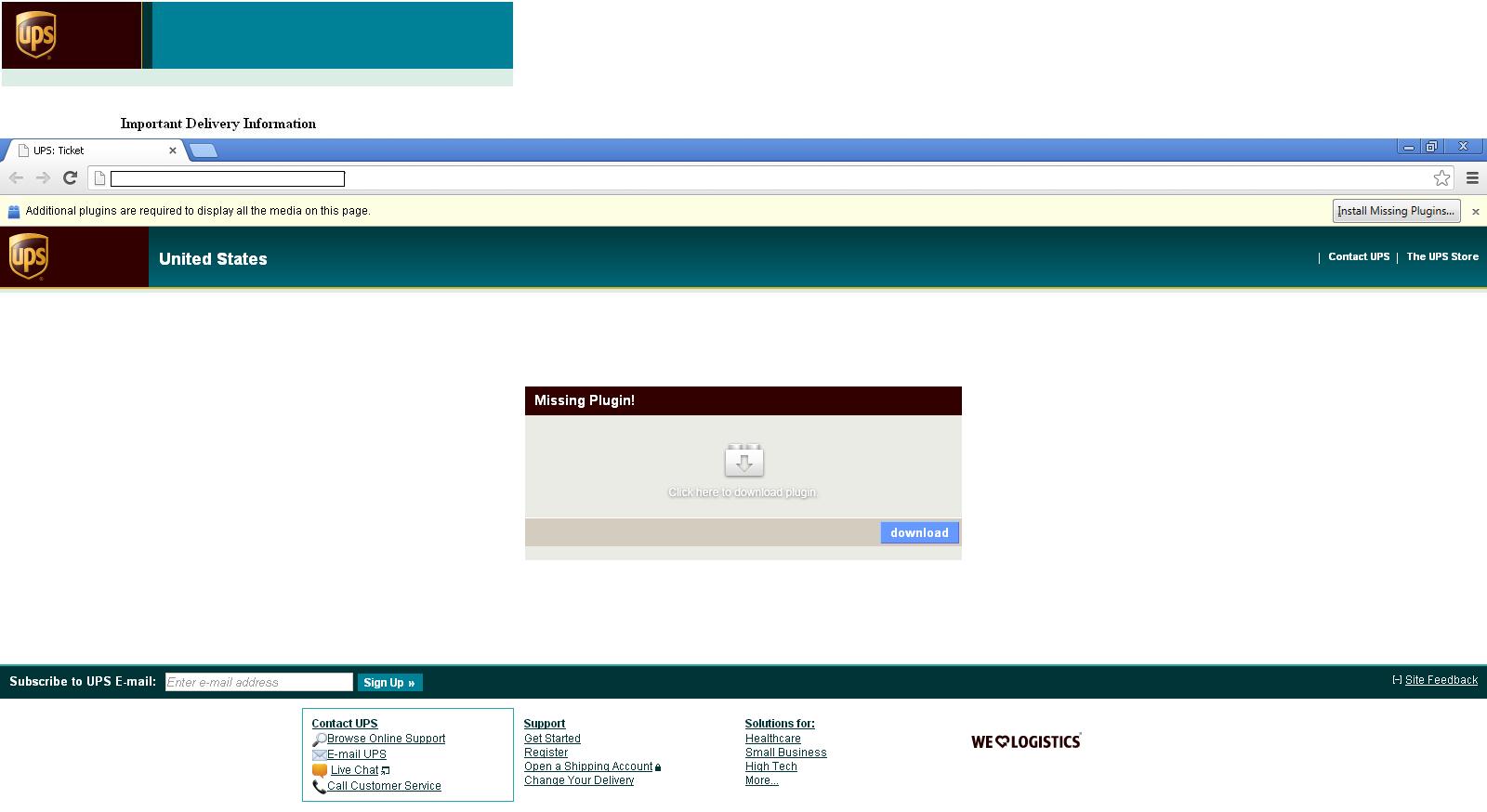HTML_FAKEUPS.A
HTML/Dldr.Agent.sdx (Avira)
Windows


Threat Type: Trojan
Destructiveness: No
Encrypted: No
In the wild: Yes
OVERVIEW
This Trojan arrives as an attachment to email messages spammed by other malware/grayware or malicious users.
TECHNICAL DETAILS
Arrival Details
This Trojan arrives as an attachment to email messages spammed by other malware/grayware or malicious users.
NOTES:
It will display the following webpage:

- http://{BLOCKED}k.{BLOCKED}e-ups.org/WebTracking/invoiceVWMHHIGU532VDMW3LV.JPG.exe/li>
- http://{BLOCKED}k.{BLOCKED}e-ups.org/WebTracking/
Wherein, the following webpage will be displayed:

In the webpage above, the malware will lure the user in downloading another malware disguised as a web plugin.
Once clicked, the browser will be redirected to the following URL and download another malware:
- http://{BLOCKED}k.{BLOCKED}-ups.org/WebTracking/JavaJREInstaller.exe - detected as BKDR_BUBLIK.A
SOLUTION
Step 1
Before doing any scans, Windows XP, Windows Vista, and Windows 7 users must disable System Restore to allow full scanning of their computers.
Step 2
Close all opened browser windows
Step 3
Remove malware/grayware files dropped/downloaded by HTML_FAKEUPS.A. (Note: Please skip this step if the threats listed below have already been removed.)
- BKDR_BUBLIK.A
Step 4
Search and delete these files
- invoiceVWMHHIGU532VDMW3LV.JPG.exe
Step 5
Scan your computer with your Trend Micro product to delete files detected as HTML_FAKEUPS.A. If the detected files have already been cleaned, deleted, or quarantined by your Trend Micro product, no further step is required. You may opt to simply delete the quarantined files. Please check this Knowledge Base page for more information.
Did this description help? Tell us how we did.

